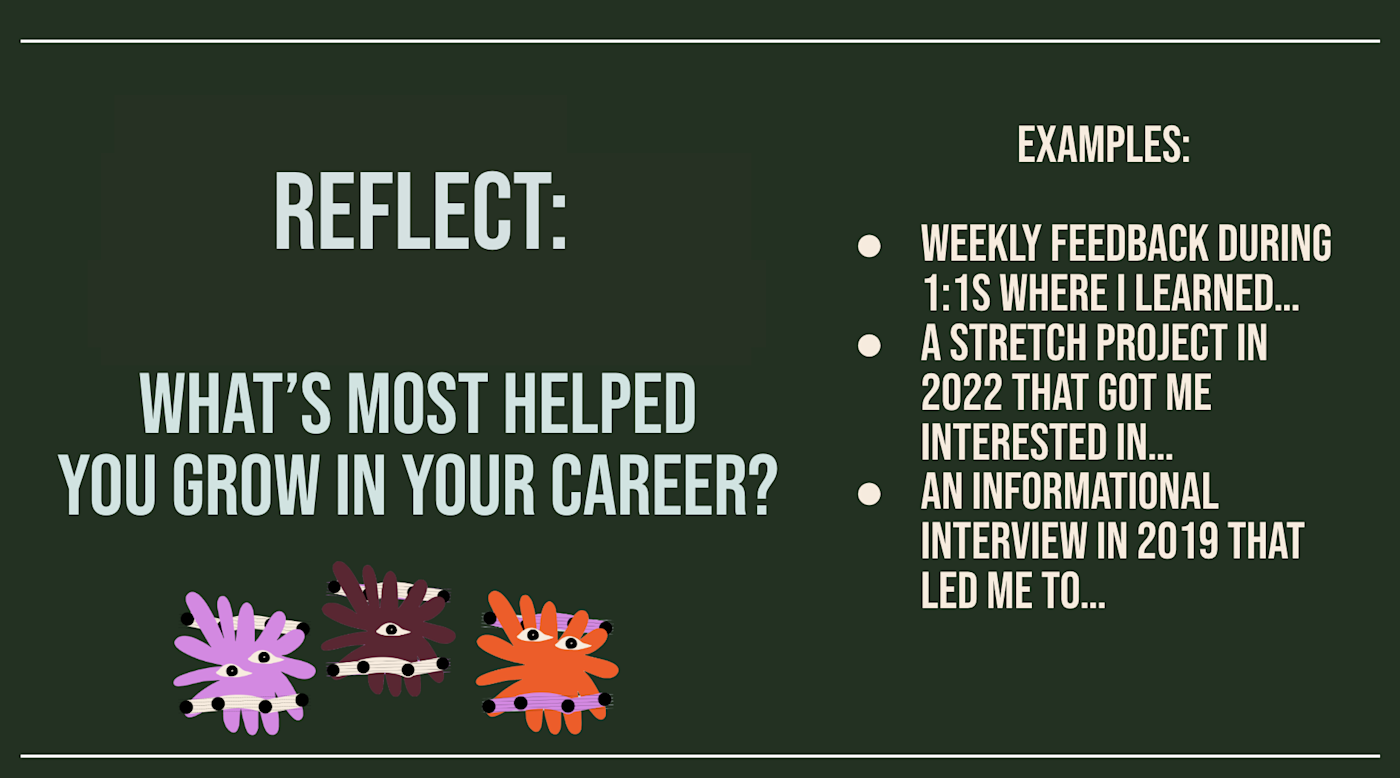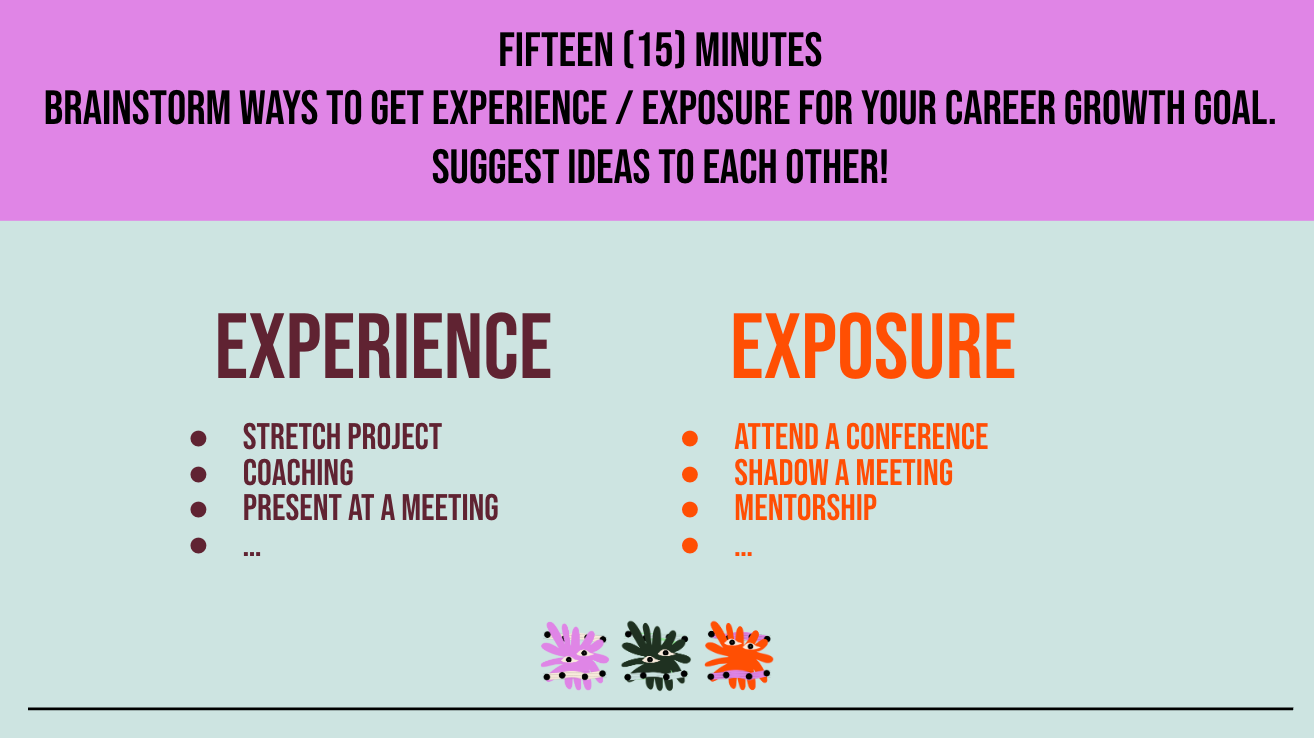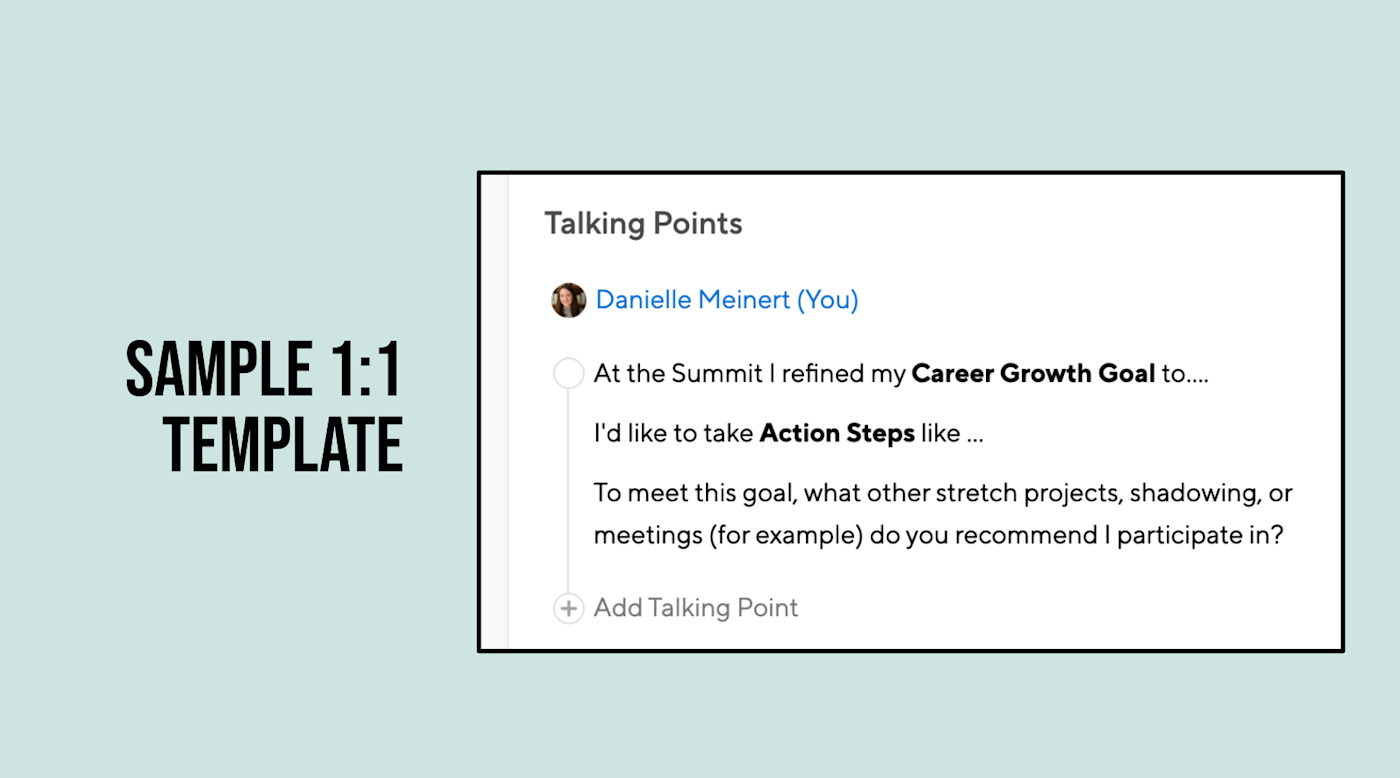You don't need a five-year plan to grow—you just need a direction and one good next step. This exercise helps you find both.
As an ICF-certified coach, I help Zapier employees and independent clients align their careers with what matters most to them. Too often, I've seen talented people settle for paths that feel safe but aren't fulfilling.
I've found my clients make the most progress when they pause to reflect on what they've already accomplished, use that data to focus on a motivating path forward, and take immediate action to make progress on it. After each action, the next step comes into view.
At Zapier's most recent All-Company Summit, I hosted an interactive workshop to help folks do exactly this. Together, Zapier teammates identified a motivating career growth goal. Then they each chose meaningful action steps to get more experience or exposure to support that career growth goal.
To make an immediate impact on your growth, spend 15 minutes on this quick exercise. Bonus points if you answer these questions with a trusted peer, coach, or mentor.
Table of contents:
Step 1: Reflect

Ask yourself: What's most helped you grow in your career?
Examples:
Weekly feedback during 1:1s where I learned…
A stretch project in 2022 that got me interested in…
An informational interview in 2019 that led me to…
What do these examples have in common? They're all forms of experience, exposure, or education.
Experience: Actually doing something that actively builds or hones a skill. (This is proven to be the best way to learn.)
Exposure: Purposefully spending time in an environment to pressure-test your interest in a skill, role, team, or something else you might want to focus on.
Education: Slowing down to learn via a course, workshop, or other structured learning tool that isn't guaranteed to help you build skills.
This isn't my framework. The 3Es—as they're affectionately referred to in the biz—are well known to learning professionals as the key to building skills.
You can ensure that your experience, exposure, and education are worthwhile by setting career growth goals that give your growth direction.
Step 2: Focus your career growth goal

Now that we have a framework to understand our past and future growth, make it worthwhile by applying it to a career growth goal.
If you don't have a career growth goal yet, imagine it's exactly one year from today. What can you do then that you can't do today? If you do have a career growth goal, make sure it's still relevant by asking, "If I've achieved this in 365 days, will I feel proud of myself?"
If you're stuck, listen to your gut. What's the first thing you thought? Write it down. We're not looking for perfection, just direction.
Step 3: Commit to experience or exposure

Now let's choose an action step that's more likely to help you make progress. That means getting more experience or exposure for what you're interested in. You can choose education steps, too, but be sure to pair them with an experience or exposure activity so you're not just learning theory.
Brainstorm ways to get experience and exposure for your career growth goal. Start by referencing your reflection in Step 1 about how you've grown in the past, and write down as many ideas as you can.
For example:
Experience for a career growth goal could include joining a challenging project as an assistant, coaching someone who's interested in your work, or presenting at a meeting.
Exposure might include attending a conference, doing an informational interview with someone you admire, shadowing a meeting with roles you want to learn more about, or getting a mentor in a field that interests you.
Look at your list of ideas. What motivates you? What would make you feel like you're growing in the way you actually want to? Circle that—it's your next action step.
Step 4: Get your manager's support for your action step

At Zapier, we offer easy ways to get your manager's support on your career growth goals. We help every Zapier teammate do a longer version of this exercise by making a career growth plan, which helps them identify their values, strengths, interests, and opportunities before choosing their next experiences or exposure activities.
We also help teammates share and track their career growth goals in our official goal tracker, which we use for performance goals, too. Storing these in the same place implicitly adds weight to career growth goals.
The simplest thing you can do is bring it up in your next 1:1 meeting with your manager or someone you look up to. Here's a template I share with my clients:
Using a career growth exercise, I drafted/refined my career growth goal to...
I'd like to take action steps like ...
To meet this goal, what other stretch projects, shadowing, or meetings (for example) do you recommend I participate in? Ideally I'd like to help the organization in ways that also support my own growth!
Step 5: Repeat
Growth happens every day, and you should focus it in a direction that motivates you. Revisit your progress with your manager, coach, and support network at least twice a year. When you do, continue to set action steps that move you closer to your career growth goals.
You deserve more than just checking the boxes or climbing a ladder that was never built for you. Your work can bring you joy. Your growth can impact your little corner of the world. Aim your career in a direction that feels meaningful and leads to actual change.
Related reading:








